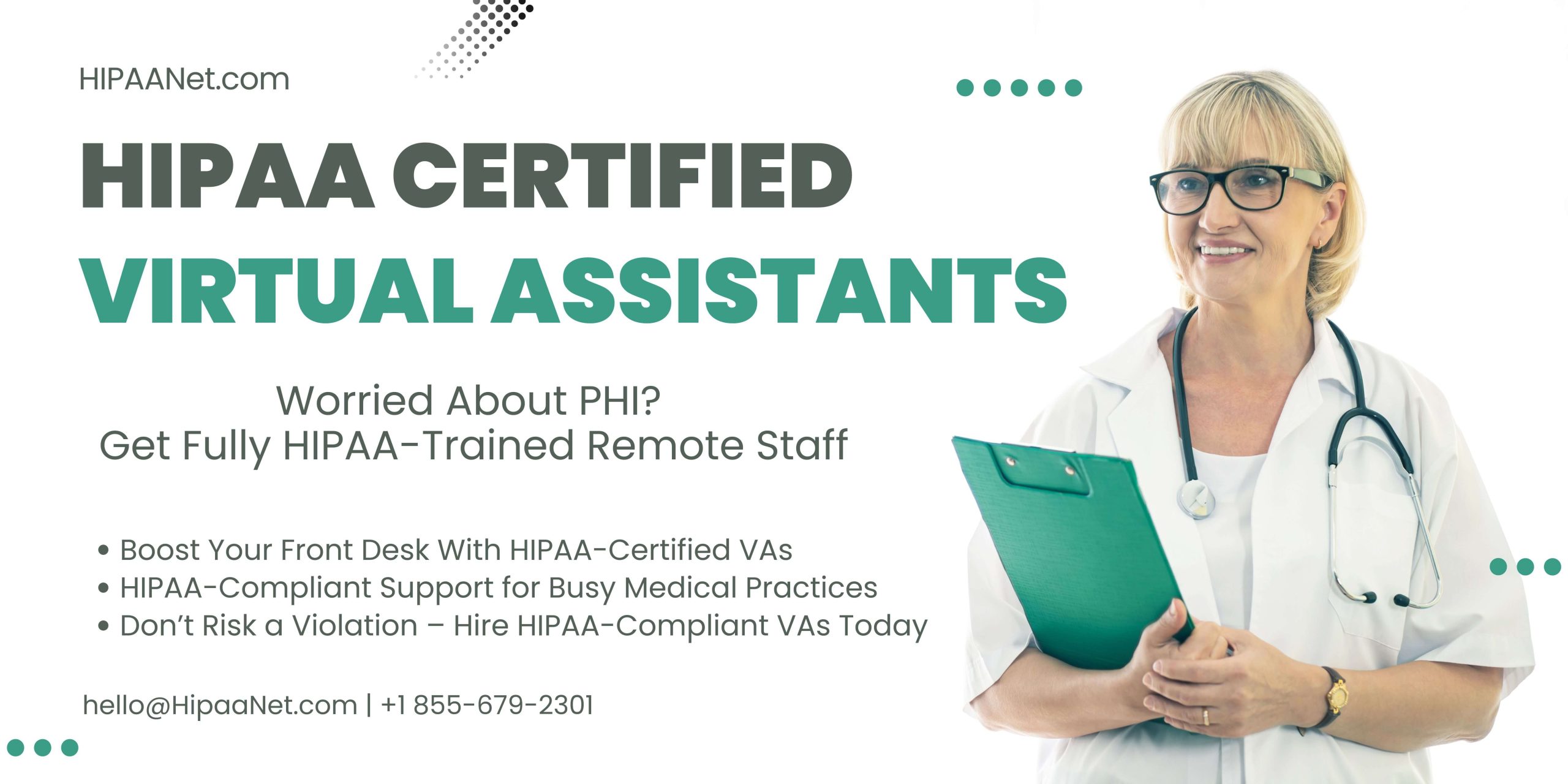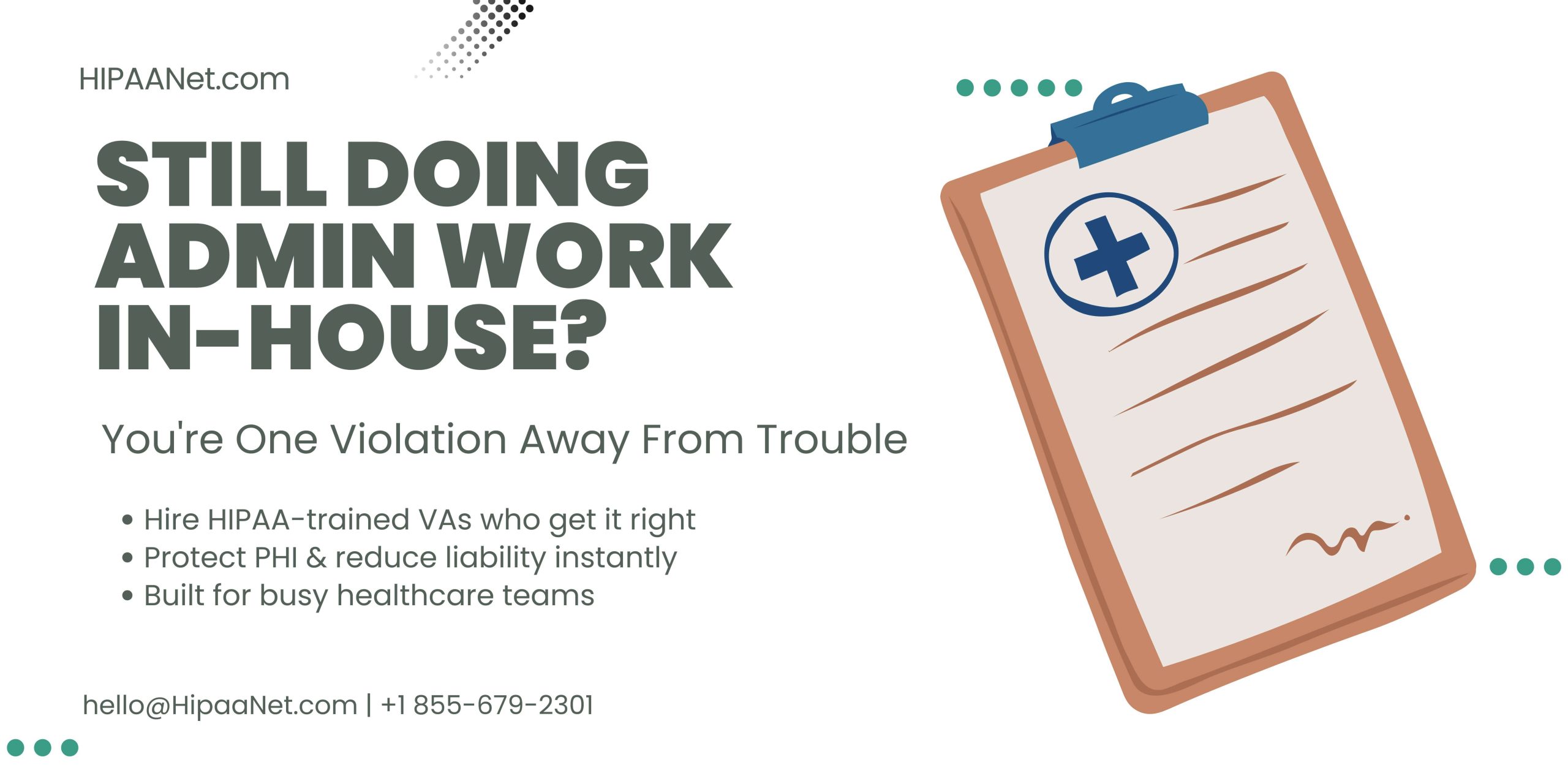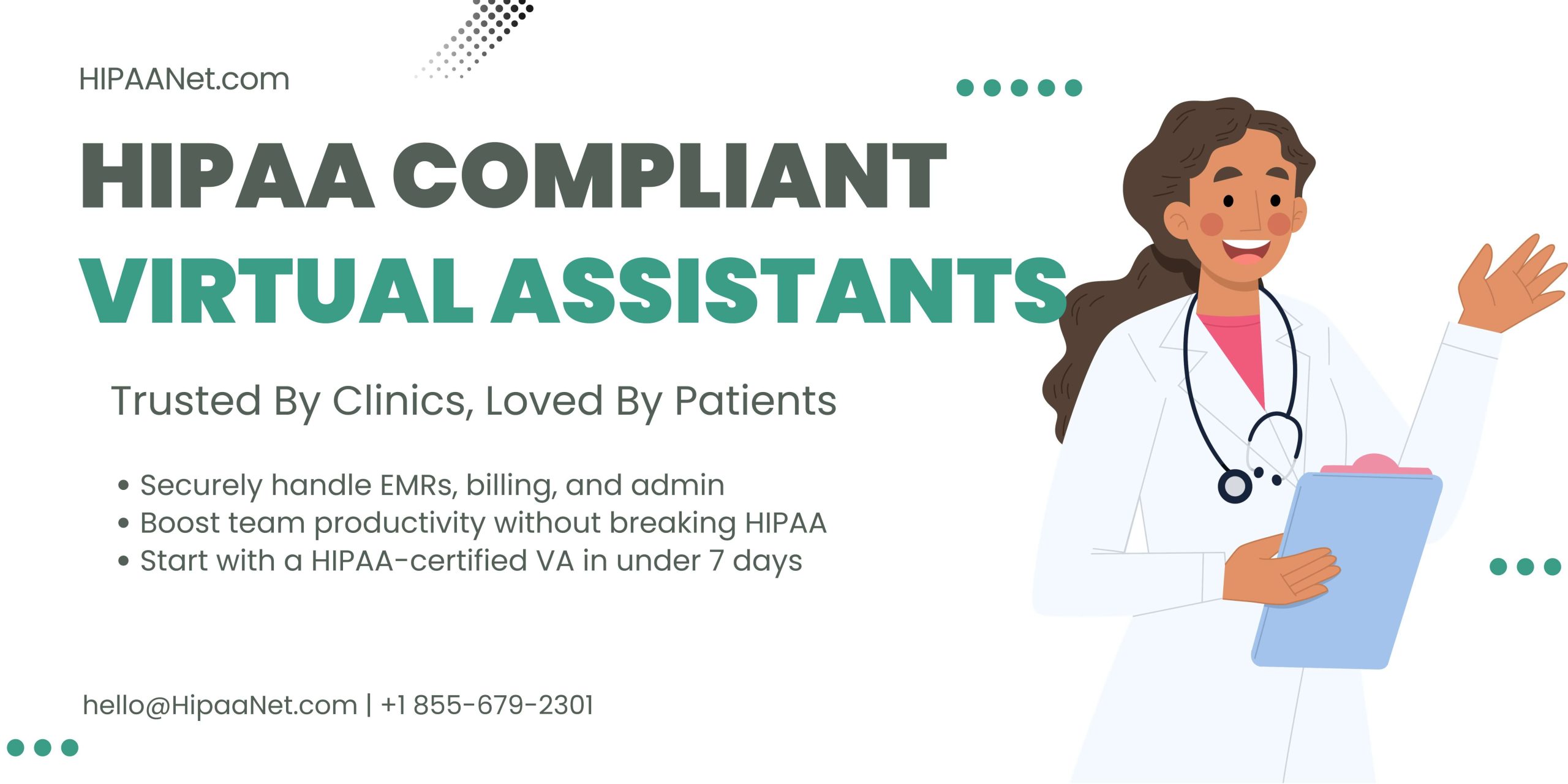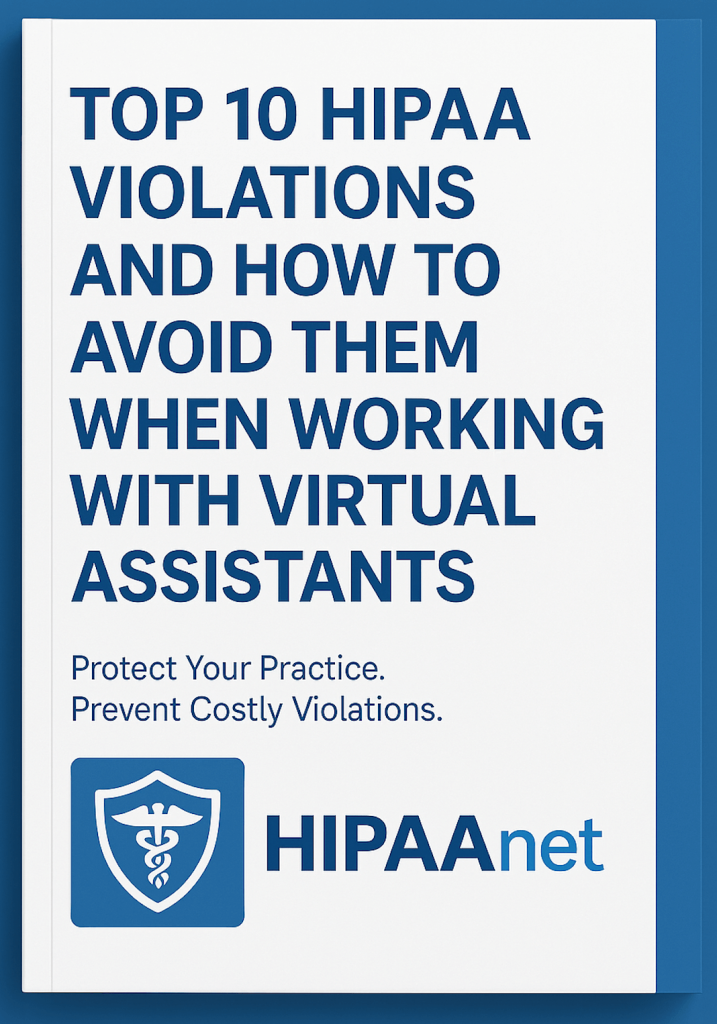Navigating HIPAA telemedicine guidelines can be tricky. With over 70% of healthcare providers now using telehealth services, ensuring compliance is crucial to protect patient privacy and avoid hefty fines. Non-compliance can lead to serious consequences, including legal repercussions and loss of patient trust.
You might feel overwhelmed by the complexities of HIPAA regulations, but understanding these guidelines is essential for your practipractice’sss. Adhering to the latest telemedicine standards not only safeguards your patients but also enhances your reputation in the healthcare community.
HIPAANet offers comprehensive solutions to help you stay compliant while providing quality telehealth services. With our expertise, you can focus on patient care without worrying about compliance with regulations. Let us guide you through the process and ensure your telemedicine practice thrives.
Overview of HIPAA Telemedicine Guidelines
Understanding HIPAA telemedicine guidelines is essential for you. These rules help protect your privacy when using telehealth services. As more healthcare practices move to virtual visits, being aware of these guidelines ensures both you and your patients remain safe.
Why is Compliance Important?
Compliance with HIPAA telemedicine guidelines is crucial for several reasons:
- Protect Patient Privacy: Safeguarding patient information prevents unauthorized access. Breaches can lead to identity theft and loss of trust.
- Avoid Legal Issues: Non-compliance can result in hefty fines and potential lawsuits. This can jeopardize your practipractice’sation and financial stability.
- Maintain Trust: Patients expect their information to be secure. Trust directly impacts patient retention and satisfaction.
Common Challenges with Compliance
Many healthcare providers face challenges in following HIPAA guidelines for telemedicine. Here are a few examples:
- Complex Regulations: Understanding the detailed regulations can be overwhelming for providers. Misinterpretations may lead to compliance failures.
- Technology Gaps: Not all telehealth platforms provide adequate security features. This increases the risk of data breaches.
- Staff Training: Ensuring all team members are trained on compliance can be difficult. Uninformed staff can inadvertently expose confidential information.
Consequences of Non-Compliance
Failing to comply with HIPAA telemedicine guidelines can result in serious consequences:
- Fines: The Department of Health and Human Services (HHS) imposes fines ranging from $100 to $50,000 per violation.
- Reputation Damage: A breach can tarnish your practipractice’s, leading to loss of patients and revenue.
- Operational Disruption: Investigations into non-compliance can divert resources and time from patient care.
Suggested Solution: Hire HIPAANet
Addressing these issues may seem daunting, but hiring HIPAANet can alleviate your concerns. HIPAANet specializes in ensuring compliance with HIPAA telemedicine guidelines. Here’sHere’shoosing HIPAANet is the best choice:
- Expert Guidance: HIPAANet provides resources and tools to navigate the complexities of telemedicine compliance. They simplify regulations and offer clear solutions.
- Technology Solutions: HIPAANet recommends secure telehealth platforms that meet HIPAA requirements. They help you choose the right technology to protect patient data.
- Training Programs: HIPAANet offers training for your staff on compliance best practices. Educated employees can minimize security risks.
By choosing HIPAANet, you can focus on providing quality care while ensuring compliance with HIPAA telemedicine guidelines.
Resources for Further Learning
For more in-depth information on HIPAA telemedicine guidelines, check these articles:
By utilizing these resources and considering HIPAANHIPAANet’sces, you can navigate the complexities of HIPAA telemedicine guidelines effectively.
Importance of Compliance
Compliance with HIPAA telemedicine guidelines plays a vital role in protecting patient privacy and ensuring the integrity of healthcare services. It’s cIt’sal for healthcare providers to understand these guidelines, as over 70% of professionals in the industry have integrated telehealth into their practices.
Protecting Patient Privacy
Protecting patient privacy is a primary goal of HIPAA regulations. These rules ensure that sensitive patient information stays confidential during virtual visits. When healthcare providers follow HIPAA guidelines, they create a secure environment where patients feel safe sharing their health information. Failing to protect this privacy can lead to significant consequences, including breaches of trust and legal penalties.
Legal Implications of Non-Compliance
Legal implications of non-compliance can be severe for healthcare providers. Violations can result in hefty fines, legal actions, and damage to a providprovider’sation.
The Office for Civil Rights (OCR) investigates reported breaches, and penalties can range from thousands to millions of dollars, depending on the severity of the violation.
Staffing and training challenges can further complicate compliance, making it essential for providers to seek solutions. Hiring HIPAANet services can alleviate these concerns by offering expert guidance on navigating compliance complexities effectively.
Key Components of HIPAA Telemedicine Guidelines
HIPAA telemedicine guidelines are rules that help keep patient information safe when using telehealth services. These guidelines make sure that doctors and patients can communicate online without worrying about privacy issues. Following these guidelines helps maintain trust and safety in healthcare.
1. Why HIPAA Telemedicine Guidelines Matter
HIPAA stands for the Health Insurance Portability and Accountability Act. This law requires healthcare providers to protect patient data. In the world of telemedicine, keeping this data secure becomes even morecriticalt. When you follow HIPAA telemedicine guidelines, you avoid penalties, fines, and damage to your reputation. If you don’t, don’tous consequences can arise, like losing your ability to operate.
2. Common Challenges in Following HIPAA Guidelines
Many healthcare providers struggle with HIPAA tguidelines for telemedicine Some of the main challenges include:
- Complexity: The rules can be hard to understand.
- Technology Gaps: Not all practices have the technology needed for compliance.
- Staff Training: Staff may not get enough training on telehealth policies.
Failure to address these challenges can lead to privacy breaches. Keeping patient data secure is crucial. You may risk getting fined by the government, losing patients, or damaging your reputation.
3. The Solution: Hire HIPAANet Services
To tackle these challenges effectively, consider hiring HIPAANet services. They specialize in helping healthcare providers understand and follow HIPAA telemedicine guidelines. HIPAANet offers expert guidance and resources that simplify the compliance process. Outsourcing to them allows you to focus on patient care while they handle the complexities of HIPAA.
4. Why HIPAANet is the Best Choice
Choosing HIPAANet has many benefits. They provide:
- Expert Guidance: Professionals who know the ins and outs of HIPAA telemedicine guidelines.
- Technology Solutions: Tools that help ensure compliance and protect patient data.
- Training Programs: Resources to educate your staff on proper telehealth practices.
By working with HIPAANet, you can avoid the stress of managing compliance on your own. Their support helps create a secure environment for your patients, allowing you to rovide the care they need.
For more information on HIPAA requirements, check out HHS.gov and Telehealth.HHS.gov.
Following HIPAA telemedicine guidelines is not just about avoiding penalties; it’s about being responsible and trustworthy in your practice. By prioritizing patient data security, you strengthen your reputation and provide a better experience for your patients.
Best Practices for Telemedicine Providers
HIPAA telemedicine guidelines aressentialnt rules to follow when providing healthcare services through telemedicine. These guidelines protect the privacy of patient information. Over 70% of healthcare providers use telemedicine, making it crucial for everyone in the medical field to understand these guidelines.
Following these guidelines helps you avoid legal issues and keeps patienpatients” This means that all healthcare providers need to know how to comply with HIPAA guidelines for telemedicine. The best help to understand these guidelines comes from hiring HIPAANet services.
Common Challenges with HIPAA Telemedicine Guidelines
- Complexity of Regulations: Many find HIPAA regulations hard to understand. Without proper knowledge, you risk making mistakes that can lead to penalties.
- Technology Gaps: Many practices lack the right technology to support secure telecommunication. Using the wrong tools can lead to data breaches.
- Staff Training: Employees often need thorough training on privacy laws and telemedicine practices. Without this training, misunderstandings can occur, exposing patient data.
Consequences of Non-Compliance
Imagine facing hefty fines for not following HIPAA telemedicine guidelines. Penalties can range from thousands to millions of dollars. Besides financial consequences, losing patient trust can seriously harm your practice.
Here’s a sample: If a telehealth appointment isn’t secure and patient information is leaked, families might avoid your services. This situation leads to a damaged reputation. Not following these guidelines can lead to audits and investigations by the Office for Civil Rights (OCR).
How HIPAANet Can Help
Our recommendation? Hire HIPAANet services. They provide expert guidance, technology solutions, and staff training to ensure compliance. With HHIPAANHIPAANet’srt you can focus on patient care without worrying about regulations.
HIPAANet simplifies the process, ensuring you follow HIPAA telemedicine guidelines while delivering high-quality care. They handle administrative tasks, allowing you to focus on your patients.
Why Outsourcing to HIPAANet Is the Best Choice?
- Expert Guidance: HIPAANet offers knowledge on navigating complex regulations.
- Technologies ensure you use secure platforms for communication.
- Training Programs: HIPAANet provides thorough training for your staff, reducing the risk of errors.
- Focus on Care: By outsourcing these tasks, you can spend more time with patients, improving their experience.
Learning about HIPAA telemedicine guidelines is vital for anyone involved in healthcare. Following these guidelines protects patient information and strengthens your practice. If you face challenges with compliance or data security, HIPAANet can be your trusted partner.
For more insights on HIPAA, check out HIPAA Journal and HHS.gov.
Following HIPAA telemedicine guidelines ensures safe and secure healthcare delivery, so you can keep patients’ trust while achieving your practice’s goals.
Conclusion
Navigating HIPAA telemedicine guidelines is essential for your practice’s success and your patients’ trust. By prioritizing compliance you not only protect sensitive information but also enhance the overall patient experience. Utilizing resources like HIPAANet can simplify the complexities of these regulations and provide the support you need to thrive in the telehealth landscape. Remember that maintaining patient privacy is a commitment that reflects your dedication to quality care. Embracing these guidelines will help you build a reputable practice that patients can rely on. Stay informed and proactive to ensure your telemedicine services meet the highest standards of security and trustworthiness.
Frequently Asked Questions
What is HIPAA, and why is it essential for telemedicine?
HIPAA, or the Health Insurance Portability and Accountability Act, protects patient privacy and information security in healthcare. For telemedicine, adhering to HIPAA is crucial to safeguard patient data during virtual visits and avoid legal repercussions that can damage trust and reputation.
What are the main challenges in following HIPAA telemedicine guidelines?
Common challenges include understanding complex regulations, technology gaps that may hinder compliance, and inadequate staff training. These issues can lead to privacy breaches and severe legal consequences if not appropriately addressed.
How can healthcare providers ensure compliance with HIPAA regulations?
Healthcare providers can ensure compliance by hiring experts like HIPAANet, which offers guidance, technology solutions, and training programs. These resources help simplify the compliance process and enhance patient care quality without compromising privacy.
What are the consequences of non-compliance with HIPAA telemedicine guidelines?
Consequences can be severe, including hefty fines, damage to the provider’s reputation, and operational disruptions. Investigations by the Office for Civil Rights can lead to penalties ranging from thousands to millions of dollars.
How does HIPAANet assist healthcare providers with HIPAA compliance?
HIPAANet provides expert guidance, customizable technology solutions, and staff training programs to ensure compliance with HIPAA telemedicine guidelines. This support allows providers to maintain privacy standards while concentrating on patient care.
Where can I find more information on HIPAA requirements?
For more details on HIPAA requirements, you can visit HHS.gov and Telehealth.HHS.gov. These resources provide comprehensive information on compliance and telehealth services.





